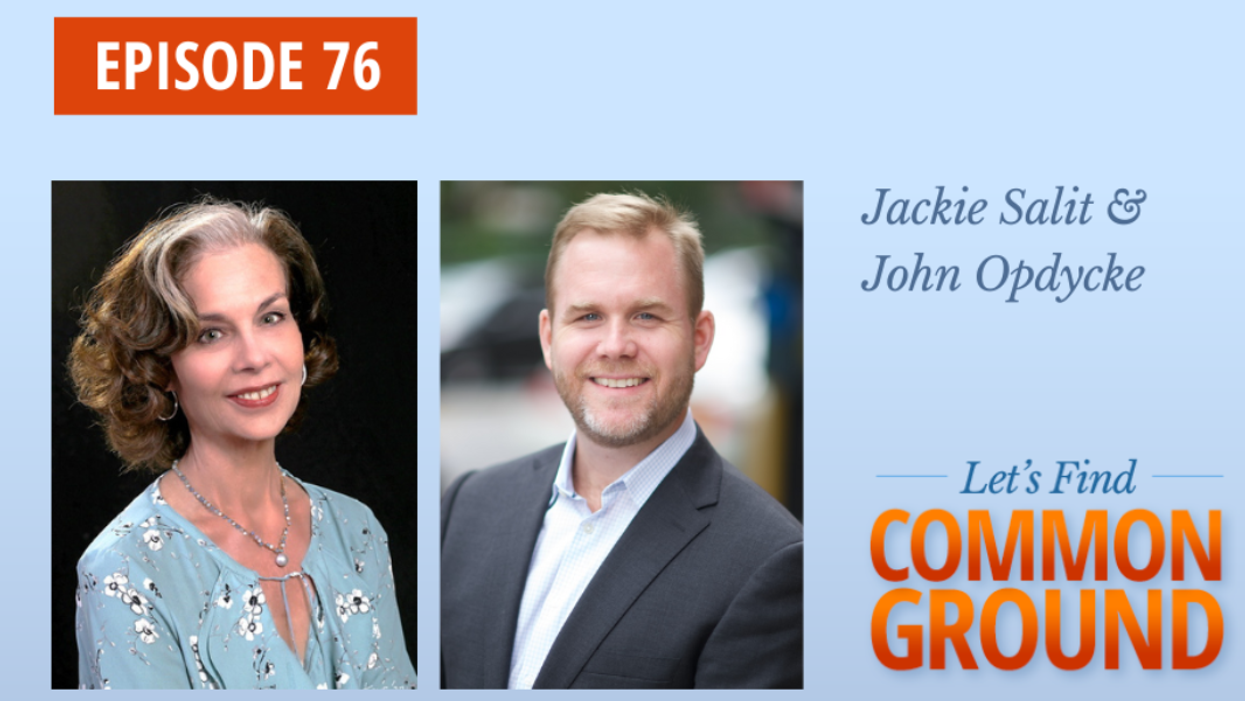Independent voters make up more than 40 percent of the voting public. But you wouldn’t know that from media coverage, which focuses almost exclusively on red versus blue. Independents are often overlooked or seen as wishy-washy, bending in the wind.
This episode’s guests say that’s a big misconception. In this show, we look at a group of voters, including many young people, that is making up a growing slice of the US population. Our guests are Jackie Salit and John Opdycke. Jackie is the author of Independents Rising and president of Independent Voting, an organization dedicated to bringing respect, recognition and reform to independent voters. John Opdycke is president of Open Primaries, which campaigns for primary elections in which every American can vote, not just Republicans or Democrats.
In a wide ranging discussion, John and Jackie say that independents are not moderates: They envision a much less divisive political system than the current one, and they want to play a bigger role in American democracy.




















